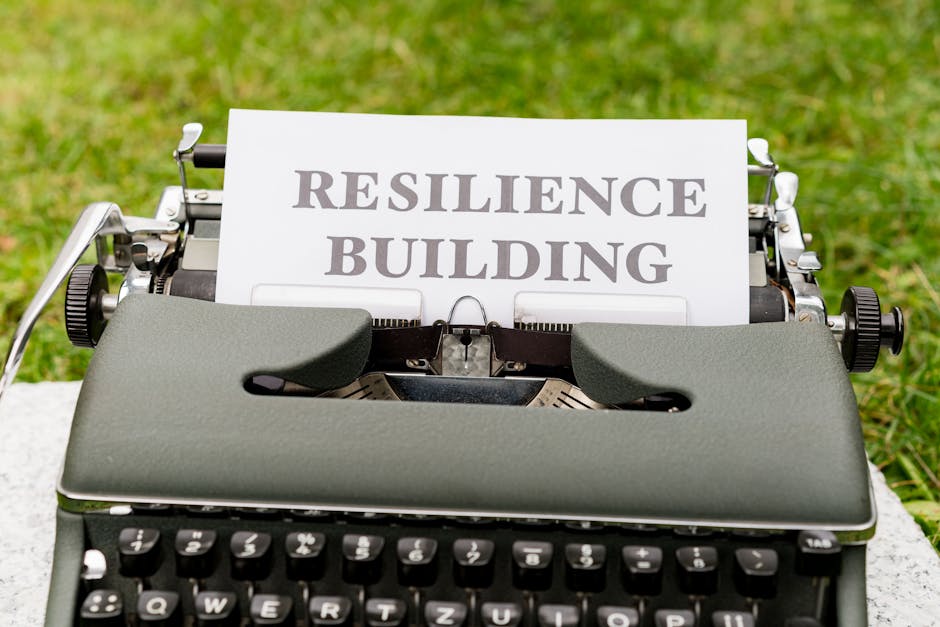Gamifying Soft Skills: Virtual Reality Transforming Online Learning
Imagine a classroom devoid of physical boundaries, where learners can conquer the emotional landscapes of their peers just as easily as they traverse virtual mountains. As technology advances, we find ourselves at the forefront of a transformative era in education—the gamification of soft skills through virtual reality (VR). With the rise of online courses, emotional intelligence is no longer a passive quality but an active skill we cultivate through immersive experiences. How is this shifting the paradigms of conventional learning?
The answer lies in understanding not just what soft skills are, but how they fit into the larger educational puzzle, and how virtual reality (VR) simulations are reshaping our approach to emotional intelligence in online learning.
Understanding the Evolution of Emotional Intelligence
Emotional intelligence (EI) is no longer just a buzzword; it’s a fundamental component of modern education and professional success. Research from the Harvard Business Review supports the notion that EI is often more indicative of success than traditional intelligence measures. By 2025, employers will heavily prioritize candidates who can empathize, communicate effectively, and navigate social complexities. This cultural shift has placed a spotlight on the need for educational institutions to integrate emotional intelligence training into their curricula.
While textbooks and lectures have long been the primary methods of imparting knowledge, they tend to gloss over the emotional nuances essential for effective interpersonal communication. Gamifying learning, especially through VR, opens up a new arena in which students can practice EI in real-time, immersive scenarios.
The Science Behind Gamification in Education
Gamification—the incorporation of game-like elements into educational settings—isn't merely about making learning fun. According to a study by the Academic Journal of Educational Research, utilizing gamification strategies enhances student engagement and improves retention rates, allowing learners to grasp complex concepts while developing critical soft skills. By simulating real-world challenges, VR can create an engaging experience that traditional mediums often lack.
Why Virtual Reality?
Virtual reality provides a fully immersive environment that mirrors real-life situations—ideal for simulating social dynamics, conflict resolution, and teamwork. These simulations allow learners to practice emotional responses in a safe space, which can enhance their capabilities to navigate similar situations in real life. For example, a student can enter a VR world to engage in a negotiation scenario, assess their response to a challenging colleague, and receive immediate feedback on their emotional cues, all within a controlled environment.
Research by The International Journal of Educational Technology indicates that experiences obtained through VR are often retained better than those learned through conventional teaching methods. This boosts emotional intelligence training by providing an experiential layer that is not just theoretical but deeply intuitive.
Gamifying Emotional Intelligence Training Through VR
Building emotional intelligence takes practice, just like any other skill. The beauty of gamifying this process lies in the variety of scenarios one can create. Here are several dimensions to consider when developing VR applications aimed at enhancing emotional intelligence:
1. Empathy Development

Imagine navigating a VR simulation where you have to lead a team during a crisis. You'll have to interpret various emotional cues from team members; the anxious colleague who is biting their nails, or a frustrated one crossing their arms. These scenarios encourage players to step into someone else's shoes, thus fostering empathy. Professional development programs featuring virtual simulations have already begun to explore this immersive approach to training.
The ability to cultivate empathy isn’t just beneficial in professional settings; it’s crucial for personal relationships as well. Creating a bridge with experiences that develop empathy is what many online courses aim to achieve.
Explore more about empathy training with VR here.
2. Conflict Resolution

Conflict is an inevitable part of both personal and professional life. However, how one navigates conflict can make a world of difference in outcomes. VR scenarios that simulate these situations allow learners to experiment with various responses, breaking down their thought processes in real-time. As they maneuver through challenges, they can gauge the effectiveness of their emotional responses, allowing for constructive development.
3. Teamwork Scenarios

Nothing cultivates emotional intelligence quite like collaboration. VR can create situations where learners must work together to achieve a common goal. Whether navigating a virtual maze or solving complex problems, participants must learn to communicate effectively and articulate their feelings and ideas. This fosters an environment of trust and respect, vital components of emotional intelligence.
4. Self-Regulation and Adaptability

Lastly, VR scenarios can include elements of surprise to make learners practice self-regulation and adaptability. When unexpected challenges arise, students learn to manage their emotions—stress, anxiety, frustration—and adapt their strategies accordingly. In these simulations, participants will find themselves immersed in environments that force them to confront their weaknesses and build resilience.
The Rise of Soft Skills in Online Learning Platforms

Platforms such as Coursera and Udemy are beginning to synthesize these concepts into their course offerings. As these institutions recognize the burgeoning demand for emotional intelligence training, they have incorporated virtual reality experiences into their soft skills courses.
Take, for instance, the course on “Emotional Intelligence in Leadership,” which utilizes VR simulations to enhance emotional learning experiences. Learners can engage with scenarios that teach them how to inspire and motivate teams effectively. These online platforms often collaborate with companies that specialize in VR technology, ensuring that users are receiving cutting-edge educational experiences.
Why Should Educational Institutions Invest in VR for Soft Skills Training?

The benefits of integrating VR into soft skills training are manifold:
-
Scalability: Online courses can cater to a large audience worldwide, making this method of training accessible.
-
Cost-Effective: While developing VR content might seem costly initially, the potential for massive reach and the high impact of training can lead to a more attractive ROI in the long run.
-
Engagement: By turning learning into an interactive affair, VR keeps students from zoning out, leading to improved retention of key concepts.
-
Real-world Application: Beyond theory, VR empowers students to explore face-to-face interactions within simulated environments, giving them tools to navigate real-world challenges.
-
Competitive Edge: As the workforce continually evolves, having an educational platform that effectively integrates soft skills training can distinguish institutions and programs.
Final Thoughts
Gamifying soft skills training through virtual reality simulations is not just innovative; it’s essential. As the need for emotional intelligence continues to grow, so must our approaches to teaching it. With immersive experiences that delve deep into human emotions, online learning can foster more than just academic knowledge; it prepares students to engage with the world itself.
In a world driven by rapid technological change, educational institutions must lean into these advancements and help shape empathetic, emotionally intelligent individuals ready to tackle tomorrow's challenges. By prioritizing virtual reality and gamified methods, institutions can redefine their curricula for not just academic excellence but effective emotional engagement.
As we look toward the future, the opportunity to revolutionize emotional intelligence training in online education has never been more within reach. Are you ready to embrace this possibility and adapt your learning methodologies?
For more insights on how innovative approaches are changing online education, check out our discussions on Creative Educational Frameworks, or delve into the implications of AI in education here.







